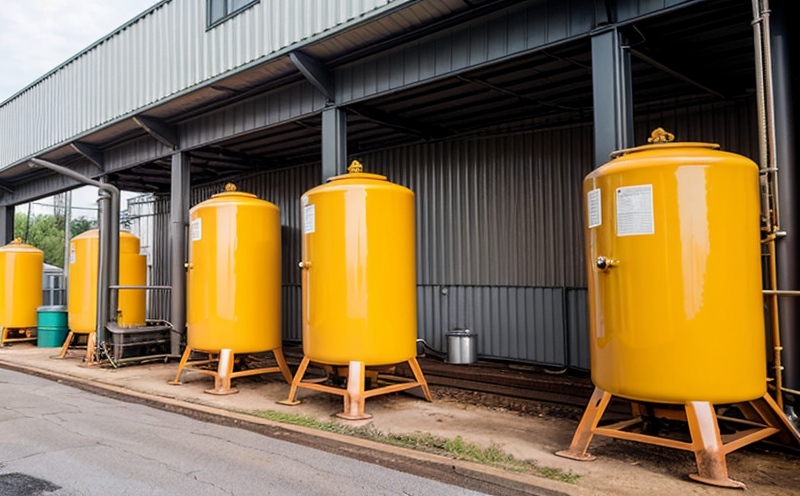ISO 12100 Machinery Risk Assessment Compliance Testing Validation Method Development Test
The ISO 12100 standard is a cornerstone in ensuring that machinery design and operation are safe, thereby protecting the health and welfare of workers. This service focuses on compliance testing for ISO 12100, which provides guidelines for conducting risk assessments to identify hazards and evaluate risks associated with machinery. Our expertise ensures rigorous validation methods and development tests to meet stringent regulatory requirements.
Our approach begins by understanding the specific needs of your machinery in terms of its application environment, operational parameters, and potential user interaction points. This foundational step is critical as it informs all subsequent testing protocols. Our team uses advanced methodologies and cutting-edge technology to conduct comprehensive risk assessments that adhere strictly to ISO 12100 standards.
The first phase involves gathering detailed information about the machinery's design characteristics, including but not limited to power output, speed of operation, weight distribution, and any other relevant physical attributes. This data is crucial for accurately modeling the potential risks involved during normal or abnormal operations.
Following this, we perform a thorough analysis using our state-of-the-art equipment to simulate various scenarios that could lead to injury or harm. These simulations cover everything from typical day-to-day usage to extreme conditions like overloading or unexpected failures. By doing so, we can pinpoint areas where improvements are needed to enhance safety.
Once the initial assessments have been completed, our engineers work closely with your team to develop and refine any necessary modifications based on findings. This collaborative process ensures that all changes align perfectly with both ISO 12100 requirements as well as your company's unique specifications.
An important aspect of this service is validating the newly developed methods against existing standards and best practices. This not only reinforces confidence in our solutions but also demonstrates compliance with international regulations such as ISO 4699:2017 for machinery safety.
In summary, our ISO 12100 Machinery Risk Assessment Compliance Testing Validation Method Development Test offers a holistic solution aimed at safeguarding your workforce while maintaining operational efficiency. Through meticulous planning, precise execution, and continuous improvement, we strive to deliver results that meet or exceed expectations set forth by global standards organizations.
- Comprehensive Risk Assessment: Identification of all possible hazards within the machinery's operating parameters.
- Safety Analysis: Evaluation of risks associated with these identified hazards using industry-standard techniques.
- Method Development: Creation and validation of procedures designed to mitigate identified risks.
Why It Matters
Compliance with ISO 12100 is not just about meeting regulatory requirements; it’s a commitment to creating safer workplaces. By adhering to these standards, organizations demonstrate their dedication to preventing accidents and injuries among employees who interact with machinery daily.
The benefits extend beyond mere legal compliance into areas such as enhanced reputation management, improved productivity due to reduced downtime caused by incidents, and increased worker satisfaction knowing they are working in a controlled environment. Additionally, successful implementation can lead to cost savings through early identification of potential issues that might otherwise require costly repairs or replacements later on.
In today’s competitive market, demonstrating leadership in occupational health & safety is increasingly becoming an expectation rather than just a nice-to-have feature. Adopting ISO 12100 shows stakeholders—from investors to customers—that your company prioritizes employee well-being above all else.
Moreover, compliance with these standards often translates into better product design and engineering practices across the board. As manufacturers strive to meet these stringent criteria, innovations in technology and materials tend to flourish, leading to more efficient production processes overall.
Industry Applications
This service finds relevance across multiple sectors including automotive manufacturing, construction equipment fabrication, food processing plants, and pharmaceuticals among others. Each industry has unique challenges when it comes to ensuring the safety of their machinery; however, they all share common goals—protecting personnel from harm while maintaining productivity.
For example, in automotive manufacturing, precise alignment between human operators and automated systems is crucial for preventing collisions or accidental entry into hazardous zones. Our testing ensures that such interactions are safe both during regular production runs as well as emergency situations like equipment failures.
In construction machinery, durability under harsh environmental conditions is paramount. We help manufacturers design machines capable of withstanding prolonged exposure to elements while still maintaining high levels of safety for operators and bystanders alike.





